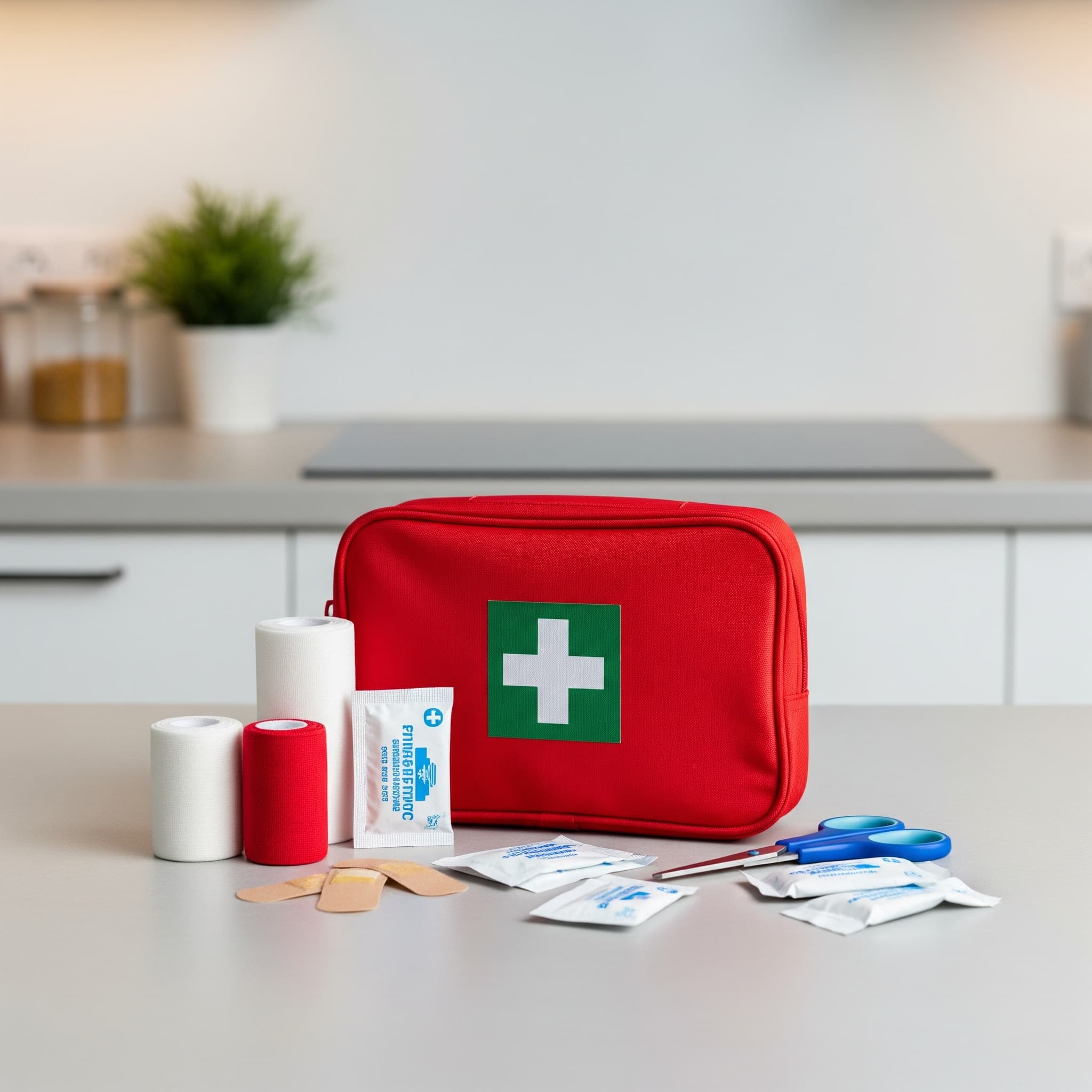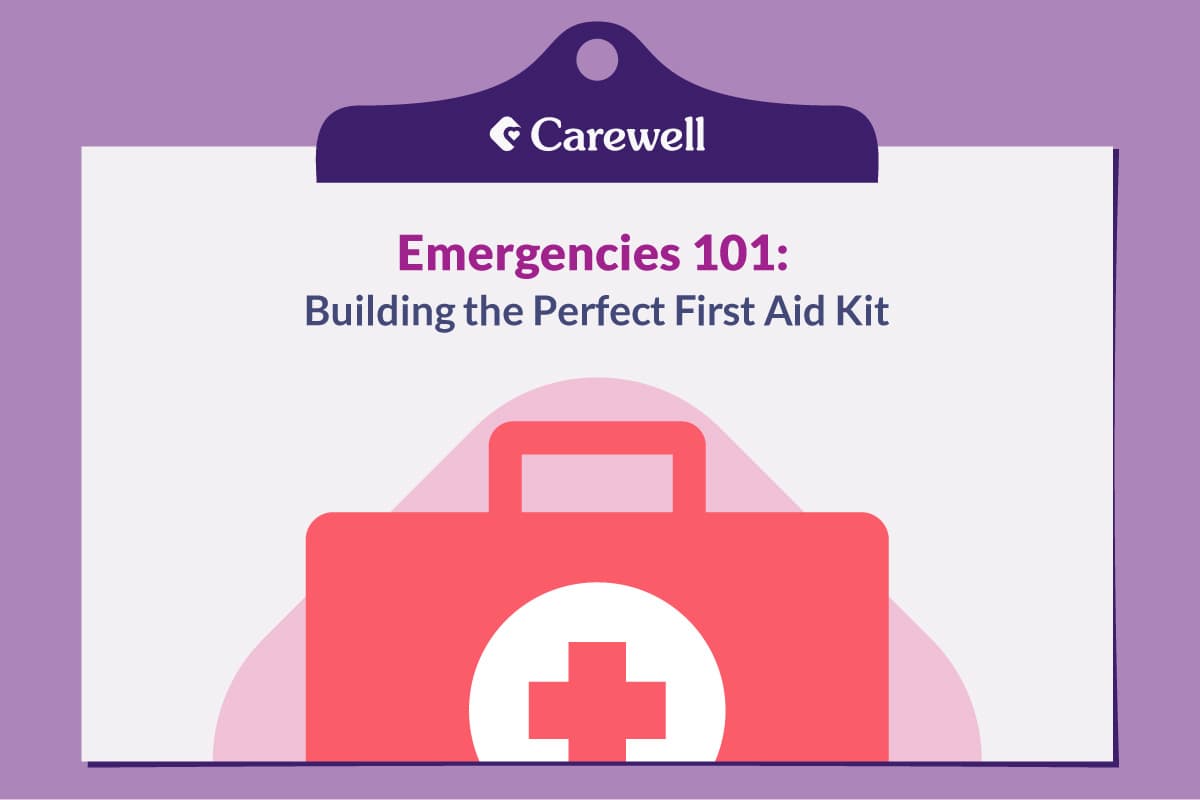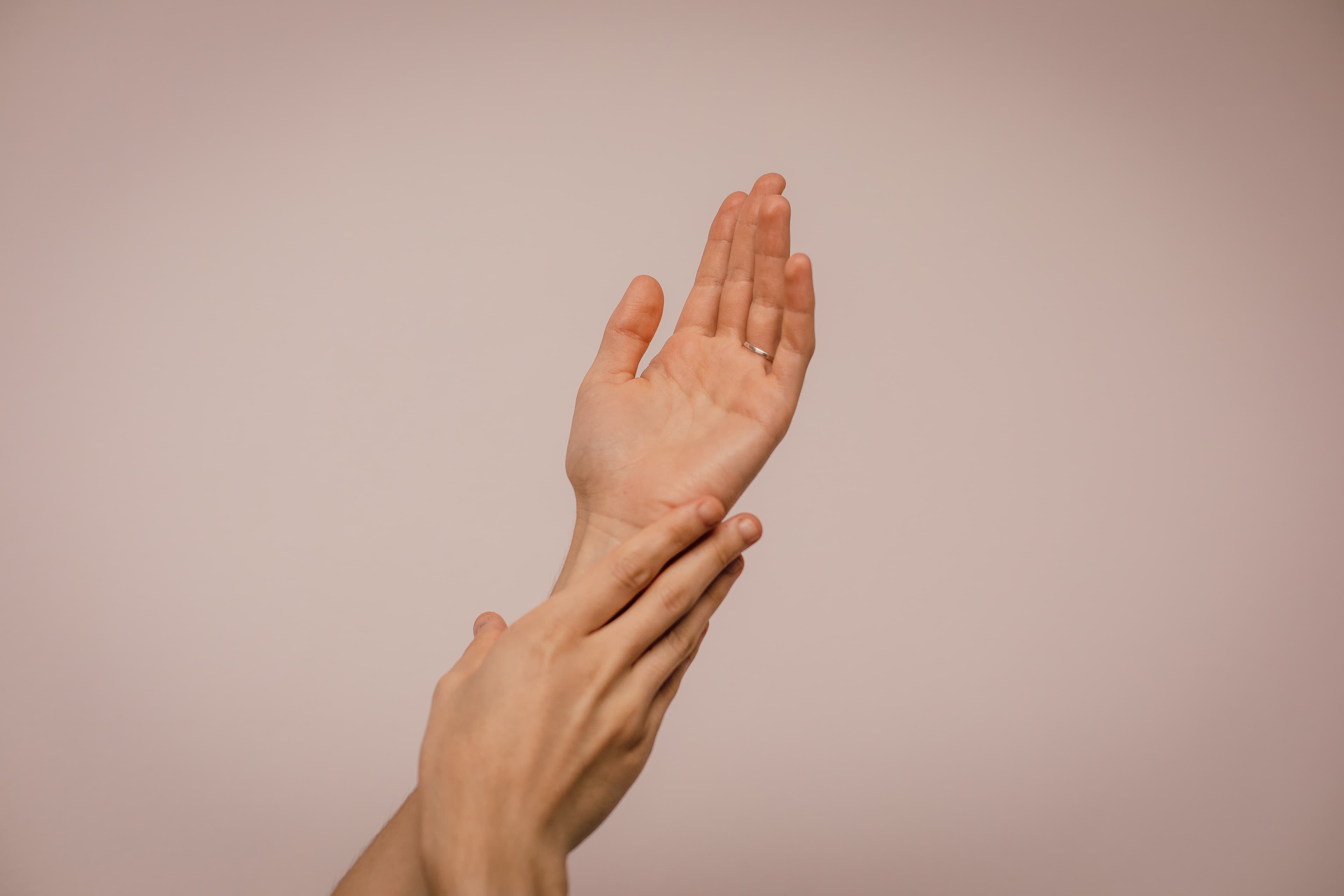Best Products to Include in a Caregiver's First Aid Kit of 2025

Written by Chad Birt on Mon Dec 30 2024.

You have many jobs as a caregiver, but one of the most important is keeping your loved one safe, healthy, and comfortable at all times. Considering that many people who require care also experience underlying health problems, it's a good idea to have a caregiver's first aid kit on hand. If your care recipient hurts themselves and requires medical help, you can minimize complications like excess bleeding until you make it to an urgent care facility or the emergency room.
Before we discuss what items to include in the kit, it's important to learn about their benefits and how to identify a life-threatening emergency if one occurs.
Why should caregivers take the time to prepare a first aid kit?
As a care provider, there's always something to worry about. Preparing for accidents and injuries before they occur can provide peace of mind.
Kelly Mantoan, a mother, author of Better Than Okay; Finding Joy as a Special Needs Parent, and the primary caregiver of two boys with Spinal Muscular Atrophy, says preparation is everything.
"Keeping an enhanced first aid kit on hand makes unpredictable events less stressful," said Mantoan. "When COVID first struck and made it tough to get certain medical supplies, I was able to keep caring for my sons and not worry about running out of the supplies they need on a daily basis or in the event of them getting sick."
It also makes life less stressful, "having a kit available at all times is a security blanket that helps me rest easy at night. I'm not always worrying about if we're prepared for some unknown emergency or not," Mantoan added.
What are the signs of a medical emergency?
A medical emergency can strike at any time, so it's important you know what to watch for. The American College of Emergency Physicians says common emergencies include:
Bleeding that won't stop
Choking
Chest pain
Difficulty breathing
Loss of consciousness
Head injury
Spine injury
Severe abdominal pain or pressure
It's also considered an emergency if your loved one swallows something poisonous or potentially dangerous like a button or a coin.
What should be included in a caregiver's first aid kit?
If you want to be able to provide basic first aid, Joyce Barocas, owner of Right at Home Lower Manhattan, a licensed home care services agency, says to include the following items in your emergency kit:
List of emergency contacts, including family members, doctors, your loved one's pharmacist, poison control, the local police, and fire department
Medications (both prescription and over-the-counter) with dosing information and instructions
Life-sustaining equipment, such as oxygen tanks, insulin, or an emergency inhaler
Hearing aids, glasses, or contact lenses
Antibacterial wipes
Tweezers
Emergency blanket
Bottled water
Several changes of clean clothing
Aside from these basic items, Mantoan recommends having some other items available. "We keep backup medical supplies and prescriptions on hand; everything from extra gloves to extra feeding tube supplies, respiratory tubing, and medication."
Mantoan continued, "It's also not uncommon for special needs families like ours to have generators on hand, either large ones for appliances and medical devices or smaller portable ones for just medical equipment. Smaller generators are handy in the event of an evacuation."
To ensure nothing expires, Barocas recommends inspecting the kit every quarter. If medication or bandages run out, refill them. Each time you conduct an inspection, jot down the time and day to update anyone else who uses the kit.
What type of basic first aid should caregivers have training in?
Aside from preparing a kit and having the necessary medical supplies, you might also want to enroll in a first aid course.
Becoming certified in CPR or advanced cardiovascular life support (ACLS) can come in handy, especially if your care recipient experiences a potentially life-threatening emergency like a heart attack or a stroke. Many organizations, including the American Heart Association, offer training courses taught by professional instructors.
If you're too busy to enroll in a course, that's okay. You can always supplement your skills by reading books, participating in care forums, or watching instructional videos online.
FAQ - Best Items to Include in a Caregiver's First Aid Kit
1. What items should I include in the kit if my loved one has dementia?
If your care recipient has a neurodegenerative illness, like Alzheimer's, include a recent photograph of them in the kit. You might also want to buy an identification bracelet. These custom wristbands include important instructions should your loved one experience a medical emergency.
2. What if I still have questions about first aid or emergency care?
If you have questions about emergency care or still aren't sure what to include in a first aid kit, contact us. Our friendly care specialists are standing by and ready to assist. Contact us by calling (800) 696-2273 or sending an email to support@carewell.com.
3. How can I make sure I'm doing CPR the right way?
Only a trained professional can determine if you're doing CPR the right way. If you want to feel confident, practice makes perfect. Enroll in training, watch videos online, and receive your certification.
4. What type of medical certifications can benefit caregivers?
There are several certifications that can enhance your knowledge and skill set as a caregiver, including:
Activities of daily living (ADLs)
Home Health Aid (HHA) License
CPR
Basic Life Support (BLS)
Automated External Defibrillator (AED)
Other Articles You May Like

Emergencies 101: Building the Perfect First Aid Kit
As a caregiver, keeping one first aid kit in your car and one at home can save valuable time and prevent mishaps from escalating into emergencies. The faster you can get to your supplies, the faster you and your family members can start to heal!
There are essential supplies that should be in every single first aid kit, and there are extra supplies that are not as critical, but great to have on hand if space and budget permit. We’ll give you both lists so you can create a kit that works best for you and your family.

How to Prevent Rashes and Skin Breakdown
Our skin is resilient and helps keep us protected from the elements. However, in some cases, lifestyle factors like being unable to move around freely or spending a great deal of time seated can damage our skin. Here are a few simple steps on how to help a loved one’s skin with some extra TLC.
Read More >
Chad Birt is a freelance medical writer who resides in Astoria, Oregon. When he isn't behind a keyboard, you can find him hiking, camping, or birdwatching with his wife Ella and their two dogs, Diane and Thoreau.